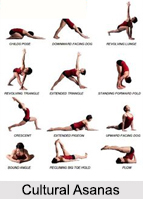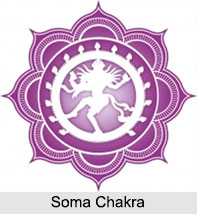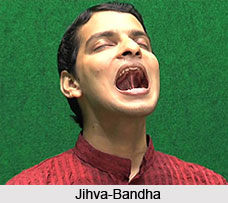 Purna Yoga or Integral Yoga is the art and an improvisation over the traditional Yoga systems of India. In this type of Yoga, people are taught to love their own self by living from the heart. `Purna,` which means `complete,` aims at attaining a union of the body, mind and the spirit. It was thought that the traditional Yoga system revolved more around salvation and rebirth, rather than the present birth. On the other hand, Purna Yoga lays more importance on the concept of Karma in the day-to-day lives.
Purna Yoga or Integral Yoga is the art and an improvisation over the traditional Yoga systems of India. In this type of Yoga, people are taught to love their own self by living from the heart. `Purna,` which means `complete,` aims at attaining a union of the body, mind and the spirit. It was thought that the traditional Yoga system revolved more around salvation and rebirth, rather than the present birth. On the other hand, Purna Yoga lays more importance on the concept of Karma in the day-to-day lives.
Purna Yoga gives Yoga a positive and dynamic form and also suggests three levels of integration, such as, the integration of the inner, the integration of the human psyche with its external environment and the integration of the psyche with its absolute spiritual plane. This type of Yoga not just brings optimism and positive energies to the body but also to the world at large. It is this united spirituality of the Purna Yoga that proficiently combines self-transcendence with love, sympathy, and respect for all living beings. It eliminates together the varied aspects of yoga, required for transformation and healing.
Purna Yoga focuses around alignment-based asana, meditation and pranayama, along with nutrition and yogic lifestyle. According to the Purna Yoga the ultimate goal of life is complete self-integration. This self-integration incorporates other important fundamentals like action, wisdom, love and peace. The yoga of love or devotion, called the Bhakti yoga is apt in affirming love as the fulfillment of life and as an essential factor of salvation. It is important to note that Purna Yoga does not separate love from wisdom and selfless action; love in its spiritual essence is an attribute of wisdom. Purna Yoga points out that knowledge is inseparable from love and action, but that action is not just a means to self-purification that leads to salvation. The main stages of Purna Yoga include objective for the divine, surrender of the individual soul to the Almighty and rejection of all hindrances to the path of total conversion. The realisation of the Divine is the first step of Purna Yoga that can be attained through constant practice of concentration, meditation or prayer. Once a person has gained the realization of the Divine, the next step would be to expand this realisation beyond entities of the subjective self.
At this very point of Purna Yoga, the person realises that the Divine is omnipresent, and that human beings have come from a familiar origin. The third stage of Purna Yoga comprises of a true acknowledgment with the `Transcendental Divine`. It is in that stage that a person realises that the Divine is not constrained within the being of a single individual and is neither within any other elements of existence. The ultimate goal of a person in Purna Yoga is to reach the higher consciousness, known as the `Supramental Consciousness` to attain freedom of the soul. Purna Yoga distills and integrates the vast aspects of yoga into a priceless set of tools for renovation and healing. Offering wisdom and techniques for the combination of the body and the mind with the spirit, Purna Yoga teaches to love the Self by living from the heart.
The practice of Purna yoga or Integral yoga is quite different from the other practices. Here the divine consciousness is called upon to descend upon the human souls so that the human becomes completely one with the divine. There is a special process of intense meditation in Purna Yoga to cause this to happen. The whole system is based on the prejudice that the divine consciousness descends into the human souls through the channel of an opening created entirely for this purpose. The process of meditation, thus, concentrates upon invoking the human system to participate into the process by letting this happen. As the first step of Purna Yoga, the Sadhak has to surrender all his ego and worldly desires in the service of the divine. Or else, the descent of the divine is almost impossible. It is considered to be a psychic movement and fairly difficult. The practitioners of Purna yoga believe that under this first step the ego has to be completely eradicated because the human ego is the biggest single obstruction in the path of the descent of the supernatural power.
The next step in Purna Yoga after erasing the existence of ego is to concentrate on attaining knowledge and wisdom. The way to do this is to sit quietly in meditative pose and try to concentrate on opening the space of Gyana in the forehead. The descent of the peace has to be practiced till it overcomes the being completely. This is the strong stage of awareness of the ultimate consciousness. The descent of the peace is the first stage of comprehension that the self is now making itself prepared for the supreme to descend. This completes the process of surrendering of the self in Purna Yoga. In the next stage the Sadhak develops a responsiveness of separation of the Purusha from the Prakriti. This leads to being alert of a dual state of consciousness in the being.
Purna Yoga comprises two stages. The first is a stage of superficial state of consciousness that a person ordinarily exists in and the other is the state of consciousness that can be best described as the state of mystical existence. The individual in this stage of Purna Yoga becomes aware of two levels of consciousness existing together in him. This is considered to be a state where the being is made evident with immense creative energy. The practice of Yoga Nidra also talks about this kind of a mental condition, which is super creative in all its elements. In this stage the person becomes aware that there are two conscious states, one which takes care of all the regular chores and the other which exists as a silent observer and just keeps a secure watch on every performance of the other. In this state all the tasks are performed with the feeling that the tasks are not just regular errands but are offerings by the individual in the path of the divine.
The final objective of the Purana or Integral yoga is to submit oneself completely to the service of the Lord and to feel from the inner core of the consciousness that all actions of the self are directed towards the servitude of the mystical. This sets the stage for the next step that is the real descent of the peace, light, power, depth, serenity, consciousness of truth in the being. This is the state of merging with all the supernatural elements and experiencing them in the daily life with the help of the human body. It is significant to note that the ultimate root of Purna yoga is to be possessed completely by the divine. It means the person is prepared to experience the nature of his self completely merging with the nature of the divine so much so that both the entities become united into one.
The constant thought and awareness of the supernatural changes occurring in the self are the main perceptions of Purna Yoga. These psychic changes lighten the soul and a constant flow of the paranormal energy is experienced throughout the system. This channelising of the energy is like a uniting chord that unites the divine with the head of the Sadhak and then his heart. This is a state of unhindered communication with the divine. This brings about the emotion of assimilation with the divine at various levels of survival.
Many people claim that Purna yoga can be practiced while absolute rejection of the world is done. But the advanced practitioners have always been resorting to complete desertion. Thus, the principles of Purna yoga do not actually say that a Sadhak has to necessarily leave all worldly attachments, but the practice itself is so designed with compulsory deep-rooted steadiness that almost all advanced practitioners move gradually to the path of complete abandonment. The word Purna in Sanskrit stands for wholeness or entirety. This is probably the type of yoga, which incorporates all practices that are required to be done in totality, thus the Sadhak invariably gets inclined towards complete renunciation in order to accomplish the divine communion at its best.



